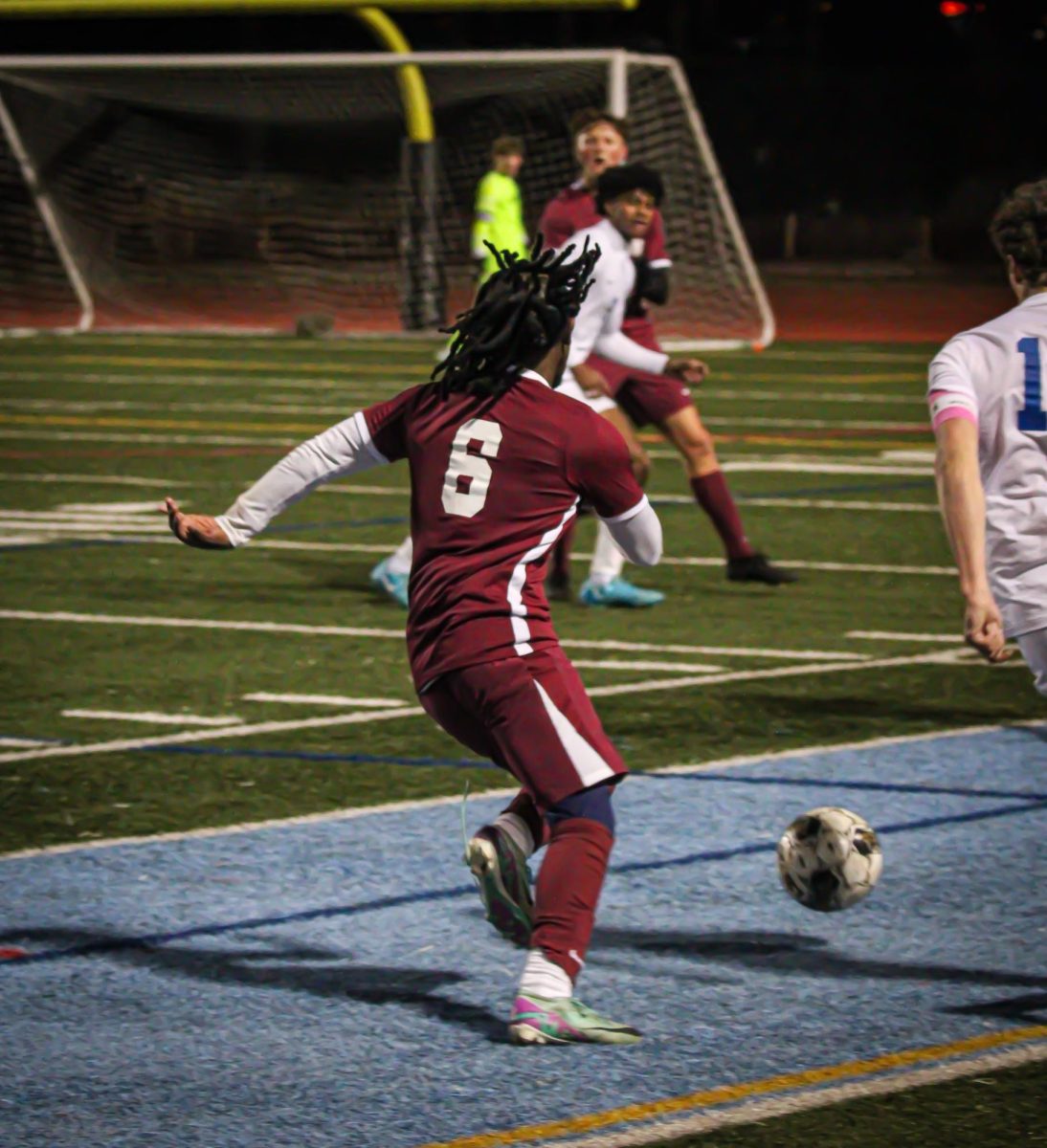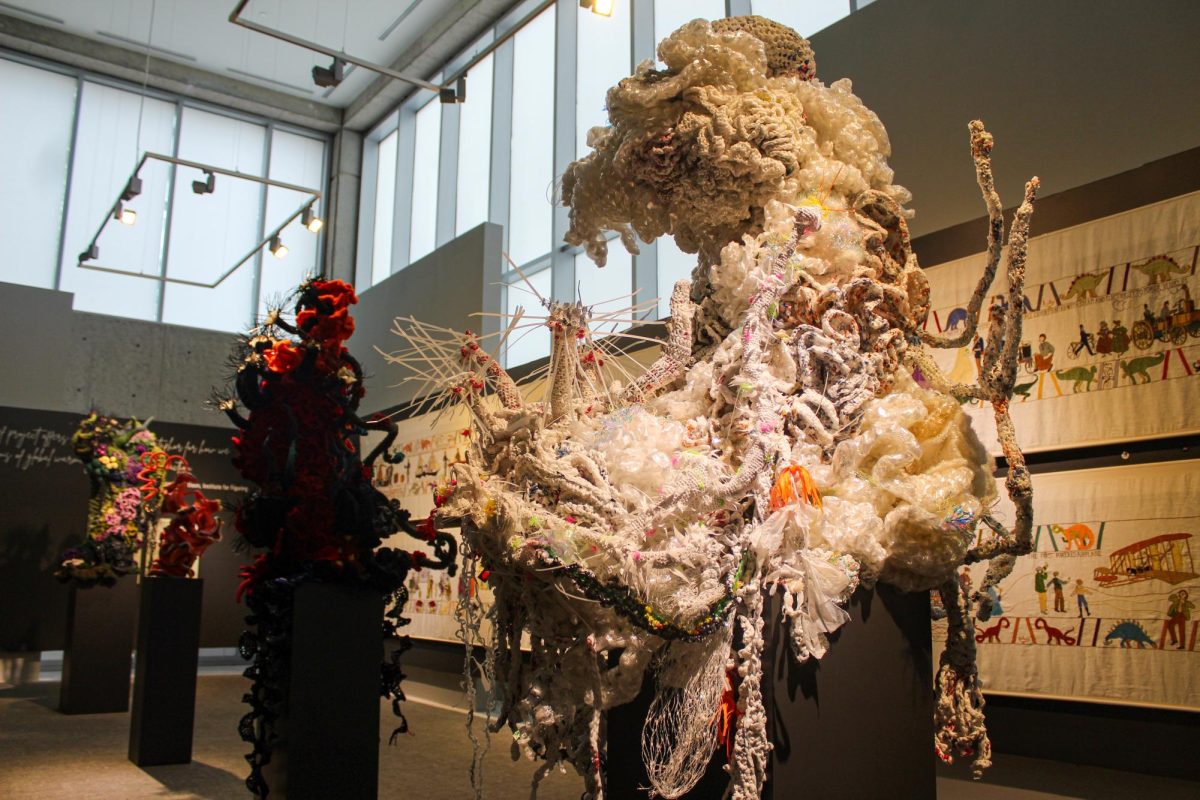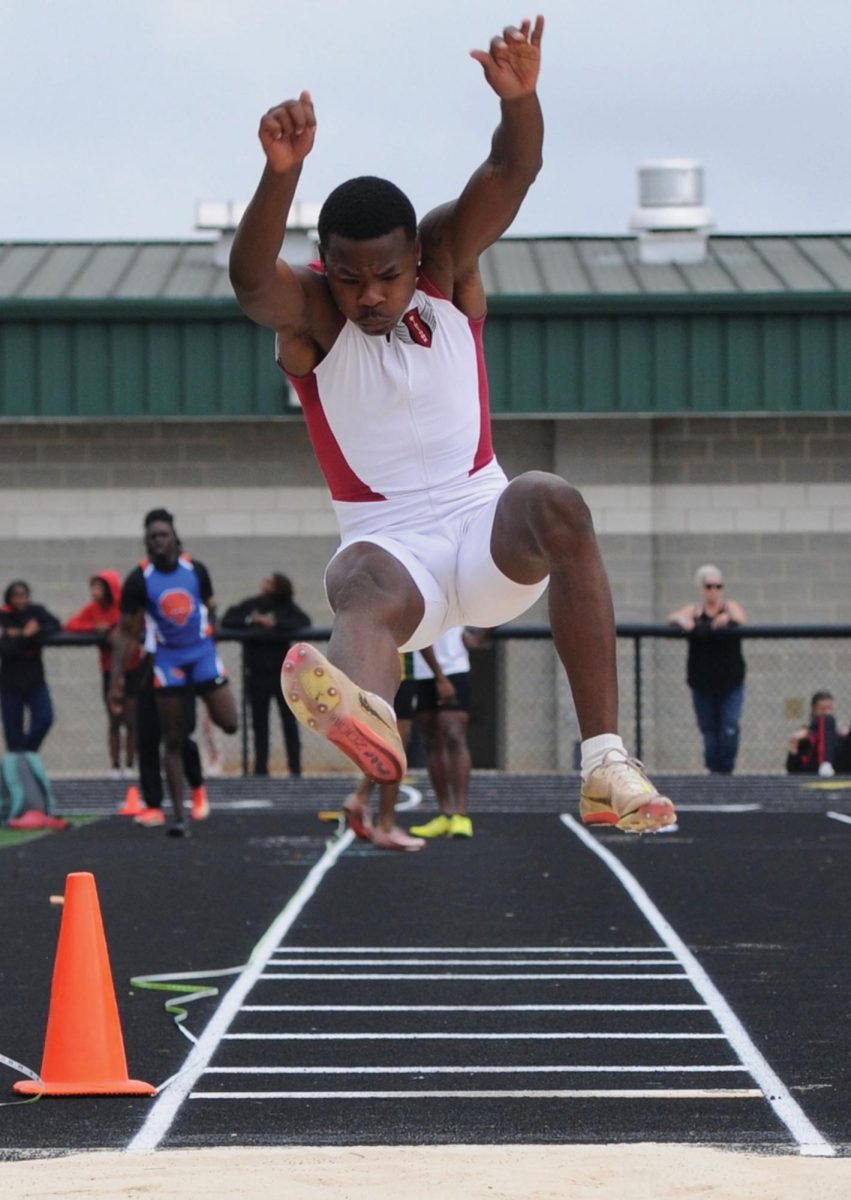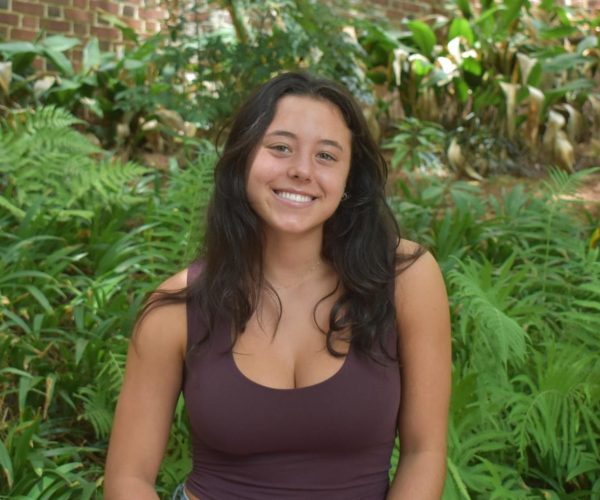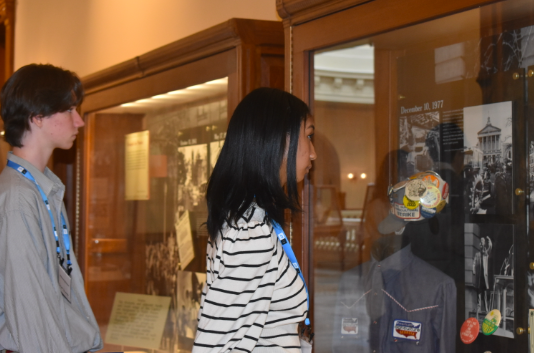
Marching up the Georgia Capitol’s steps on a brisk day, 21 students eagerly prepared for Advanced Placement (AP) Day Under the Gold Dome. In this annual event, AP students had the opportunity to discuss AP access and funding with lawmakers.
The event, held this year on Feb. 29, fell on the same day as the Capitol’s “Crossover Day.” Crossover Day occurs on the 30th day of the legislative session when the majority of bills are passed to the other house where the bill may be changed. AP Seminar and Research teacher Lisa Boyd selected students and organized the field trip.
“A lot of the students I picked based on their public speaking skills,” Boyd said. “I also picked [AP] Seminar students who had researched educational issues, so I knew they already had some background knowledge on equity issues with education. I also chose students that have consistently performed well and I can trust to be the voices of Midtown.”
Boyd has been Georgia’s State Lead for the nationally recognized AP Advocacy group for several years and said that the field trip to the Capitol gives students a chance to get involved beyond their classrooms.
“For years I’ve been taking kids to the Capitol,” Boyd said. “One of the things I realized as I’ve been doing this over time is that instead of only taking seniors, thinking it just impacts them, it’s important to take some of the younger students so that they continue to advocate while they’re still in high school.”
Boyd said that in the past, legislator outreach has been successful.
“When I was teaching in Henry County, we created a really good relationship with one of our representatives and he would come to our school and see what we were doing,” Boyd said.
Student Support Specialist Cheryl Nahmias attended the field trip as a second chaperone and said she thought the trip would be a perfect opportunity to get to know students she doesn’t normally work with.
“Boyd is a colleague in the same hall with me, and she explained to me what she’d be doing on this trip,” Nahmias said. “I thought it’d be an interesting opportunity to learn more about this process of advocacy for students at the Capitol.”
Nahmias said she would want to attend the same event in the future because of all she learned.
“I have a more detailed understanding of how it works for individual citizens or groups of citizens to come down to the Capitol and participate in the [legislative] process beyond just watching things on the floor or holding signs outside,” Nahmias said.
Sophomore Lola Lignugaris said that the trip exceeded her expectations.
“I thought we were going to walk around and it [would] be more like a tour than interactive stuff,” Lignugaris said. “It turned out after we got there and started talking to representatives that we had a lot of responsibilities to talk to members [of the House] that I didn’t think was necessarily going to happen.”
Similar to Nahmias, Lignugaris said that the trip allowed her to understand representatives more and what they do for AP students.
“I got more knowledge of how actual representatives work,” Lignugaris said. “I actually got to see people go up, talk to representatives and pitch this issue in 45 seconds.”
Boyd said that the College Board made planning the field trip easy.
“A lot of times for field trips, one of the biggest problems is funding,” Boyd said. “Because this is sponsored by the College Board, corporate funds [everything] for us. So College Board had set the bus for us [and] lunch and breakfast when we get there. All those things are taken care of so I was able to just quickly fill out the [field trip] request form and say, ‘Zero costs for students.’”
Boyd said some of the preparation for the field trip includes research on AP equity.
“We research a lot of things that are happening in other states in terms of education, bills and funding,” Boyd said. “We want to be able to show comparative data to lawmakers. We also do a lot of letter writing, emailing and calling lawmakers so that we can get to know the people who are actually making decisions. We do a lot of this throughout the year.”
Boyd said that as this field trip gains more attraction, she will be more particular in deciding the group she will bring.
“Next year, it will depend on how many groups we have, but we may have a more selective process in deciding who can go,” Boyd said. “We can maybe have people apply first. But, the people who go would definitely be engaged in the [AP] process and ready to go be strong speakers about educational issues for students.”

